
'Dear Ms Walker, be so good as to kindly burn in Hell...'
In the middle of the night last weekend, I was the recipient of several messages complaining about one of my posts. The person who tried to leave angry comments on the blog found themselves thwarted by my comment approval system and therefore the comments left got angrier and angrier. They claim I lied, that I had made things up that I was slandering (or is it libeling?) the artist in question. Now, you should know by now that I spend an awful lot of time and effort researching my work and actually I hadn't written anything particularly revelatory. Anyone could have read the same on many different websites or in the probate records in question. However, the complainant claimed to be a descendant of the artist and felt very strongly that the incidents in the artist's life were untrue, damaging and hurtful.
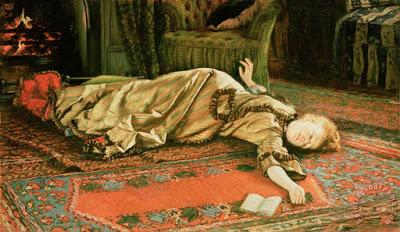
Me, after receiving criticism
This isn't the first time I have come across some one who feels very passionately about their interest and unfortunately it is not the first time that I have received very nasty and threatening emails because I have written something that someone who regards themselves as the expert doesn't agree with. I stand by my research and can only imagine that the websites I read in my preparation were braver than I in defying my correspondent. As the person in question seemed so enraged by my work and as I had no wish to ever hear from the party ever again and I'm a massive coward, I took down my post. Then I started thinking about the things we say about dead celebrities...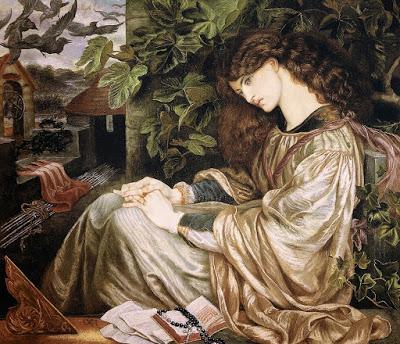
Jane Morris as La Pia, the unhappy wife of an awful husband. Because she was. Apparently.
Should the truth always trump discretion? My knee-jerk reaction is obviously to say yes, truth will out and helps us understand people and their motivations. However, pause for a moment to imagine a future when everything in your life is revealed. Would you want that? Would you agree that moments of regret you hold secret should be brought forth as evidence to something or other? Even things you don't regret but just don't have any relevance to what you do, what would you feel about that? Maybe we should follow Roland Barthes, literary theorist, and divorce author/artist from their work (see Death of the Author). What effect does our biographical reading of art and literature have on our understanding of those that make it and how far should we go?
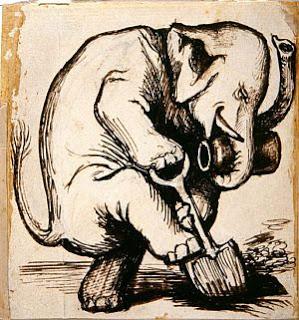
Rossetti's cartoon of the thieving elephant for Fanny, nicknamed 'Elephant'...
Back in 2011 I wrote a blogpost on the myths surrounding Fanny Cornforth. For years people had been writing that Fanny was an illiterate, thieving, lying prostitute. Turns out most, if not all, of those things are not true, or at least not the full truth. Furthermore, for the most part people talking about Fanny Cornforth were actually talking about Dante Gabriel Rossetti. Her character was a reflection on his; what difference can be seen between his choice to love a lying, illiterate prostitute or his loving a country woman who was just a bit tenacious in her love? Also, while we're on the subject, what should we read in to the fact she died in an asylum?
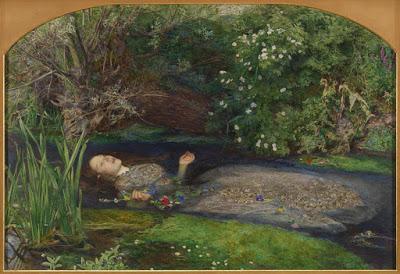
Ophelia (1851-2) John Everett Millais
I have lost count of how many times I have winced when someone casually states that Elizabeth Siddal killed herself. She may have killed herself but equally she may have just taken the drugs by accident. What's the difference? Our reading of suicidal Siddal plays well with our image of her as Ophelia, it fits the narrative of a doomed heroine. Is it wrong of us to hold Elizabeth Siddal up as a martyr for women who love too much, who are consumed by their art and become a victim of their own passion. If that strikes a chord within us, is it wrong to find solace, to find kinship with someone who we make a connection with? Is there harm in seeing an aspect of ourselves in another? Undoubtedly Elizabeth Siddal was unhappy, was caused unhappiness by an uncaring and careless husband and found an outlet in her art and poetry. Arguably those moments of unhappiness probably led to thoughts of death. The problem becomes when that is all we see of her and she is reduced to the woman in the bath tub.
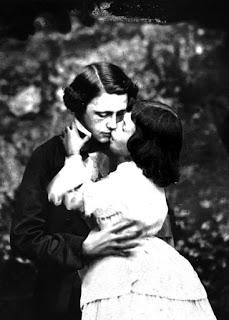
Lewis Carroll and Alice Liddell. Sort of.
What about when investigation becomes speculation? The above photograph is quite common on the internet and is a complete fake (and not a very good one) but seeing as we are constantly told that Lewis Carroll was a pedophile, this photograph fits the narrative. It completely colours our response to his work and makes everything tainted. What evidence do we have that it is true? None. We have a man who was socially awkward, who could communicate well with children and had a collecting mania for images of little girls. That's not the only Lewis Carroll rumor that irritates me...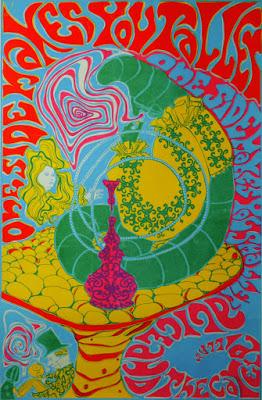
Alice in Wonderland poster, 1967
Apparently, Alice in Wonderland is all about drugs. It took the clever folks of the 1960s to realize this and for ever more you can't mention Alice without some wise soul saying 'Of course they were all on drugs.' Well, no. Well, maybe some of them. But not Lewis Carroll because he was too busy staring improperly at little girls. Apparently.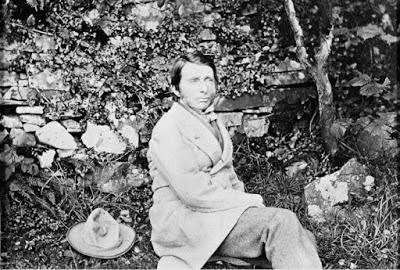
John Ruskin in a lady's garden. My apologies.
And don't get me started on John Ruskin.
So maybe my angered correspondent was correct, saying that personal details are not up for discussion because no-one can ever see in the darkness of another's soul, let alone one who has been dead for a century. It does seem to lead to some very spurious lines of inquiry and dead ends, not to mention distracting from the genius that brought these people to our attention in the first place.
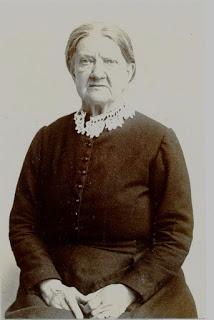
Fanny Cornforth (1907)
However, without a bit of digging, it would be impossible to right the wrongs done to people in the past. Fanny would forever be the illiterate thieving tart that her accusers decided she was which is deeply unfair. Something that really seemed to bother my own personal critic was that I had said that one person in her story had died in an asylum (listed in his probate record) and that another had killed herself (listed in subsequent newspaper reports). For my critic there seemed to be a stigma about both things, where as I attached no judgment to either. Suicide is such a complex issue (even when it seems straightforward) that it would be impossible to say why someone would do it let alone be stupid enough to blame them for their action. As for asylums, I think we would all agree that actually being mad would put you in a minority in a Victorian asylum, but if the person had problems with mental illness I'd hardly be the first person to throw stones.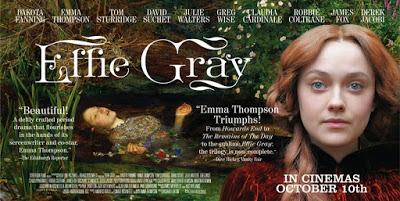
Fact/Fiction/Opinion - take your pick...
So, in rambling conclusion, biographical research and speculation are both essential and unnecessary. I'm glad we cleared that up. Seriously, it's an unwinnable fight because it both casts light and confusion on your subject. Not only that, for some people certain facts are unpalatable because of their own personal feelings. I think it is salient to consider how speculation, however well-founded and well-intentioned, can offend and no matter how long ago your subject passed away there will be people who feel passionately about the sanctity of the subject. When your subject is long-dead, it seems easy for us to speculate on their sexuality, criminality or insanity because they are hardly likely to take issue and prove us wrong. However in this hyper-connected world where people can find you at the touch of a button, there will always be someone who will take issue if they don't like you saying that Dickens wore a dress every Sunday or Tennyson was a founder member of Black Lace.Be sure of your facts, be confident of your work, but remember that people, both dead and alive, deserve respect and understanding.

